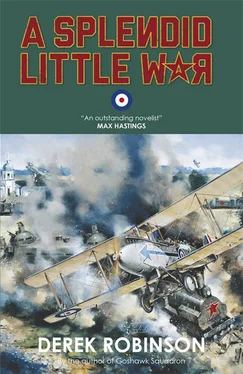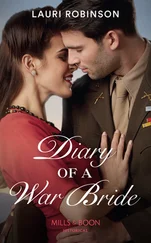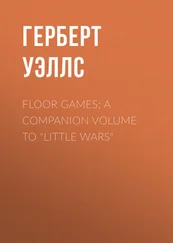“That’s ridiculous. You can’t be worse than worthless. It’s like…” Wragge was struggling. “Forget it. Anyway, they gave him another squadron. The Camel’s a decent enough bus. What’s he got to complain about?”
“Russia’s not France.”
Wragge booted the waste-paper basket and scattered Lacey’s rubbish. “I think I’m beginning to understand that, Uncle. It’s not Mexico, either. Or Portugal. Nobody promised the silly bastard it would be France. Why blame us?”
Brazier spread his arms in defeat. “Maybe every C.O. needs somebody to blame.”
“Too deep for me. And I don’t give a toss why Griffin picked a fight with all those Bolos. Who cares, anyway? I want to see the chief mechanic. Anderson. Peterson.”
“Patterson. Very good man. I’ll get him.”
“Now.”
Patterson arrived, very grimy. He was twice Wragge’s age and his grey hair was stained with oil. Wragge told him to take a seat, offered him a whisky which he readily accepted, and asked him for a frank account of the condition of the aeroplanes.
Patterson gave it to him: engines, guns, gauges, pumps, airframes, control wires, wing structures, struts, rudder units, wheels, fabric. He didn’t waste any words — he was from Glasgow and he knew that you had to keep it simple when you talked to the English — but it took him ten minutes. The whisky was a lubricant. Brazier topped it up.
“It comes down to this,” Wragge said. “If it were up to you, they would all be scrapped.”
Patterson had been in the Service too long to be tricked into saying that. “Complete overhaul, sir. Everything stripped and tested. Everything.”
“Do it, Patterson. And thank you.”
Patterson finished his whisky, every last drop stripped and tested, and left.
“All operations are cancelled for a week,” Wragge told Brazier. “This isn’t France. The bloody silly war can wait.”
“I hope your decision has nothing to do with what I said about Griffin.”
“Certainly not. Griffin was crackers. I may be batty but I’m not crackers. Big difference. That was the first thing they taught me at Eton.”
*
Sergeant Stevens had taken the Chevrolet ambulance to the crash sites and shovelled as much as he could find into canvas sacks. He was always guessing. Was that half a shinbone or a bit of broken strut? Never mind, shovel it in. Extra weight would be useful. He worked fast at Dextry’s wreck. The Red armoured trains had gone but they might come back.
So there were three coffins and nobody had any illusions about what might be in them. Some of it could be Prod Pedlow and some of it Joe Duncan, but which was in whose coffin would never be known, just as half of Rex Dextry’s remains could easily be those of the Bolo pilot he crashed into.
Oliphant went to the C.O. “No speeches. No Lacey. No heroics. And no God stuff,” he said. “That’s what my bomber boys want. A few words from me about Pedlow and Duncan will do, and you should say something about Dextry, and then the coffins go down. Rifles, bugle. Dismiss.”
“Alright. Actually, I think we’re all getting a bit sick of Lacey’s poetry.”
“Tumult in the clouds,” Oliphant said, and they both laughed. “In the clouds is where we go to get away from the damn tumult. Lacey’s a penguin. He calls himself a pilot officer but he flies a desk.”
The service lasted ten minutes. The rifle volley was crisp and the bugler did not sound any false notes. They were getting better with practice.
1
The ground crews worked. The air crews had a holiday.
Lacey paid everyone, which made them feel better, and he took the Chevrolet to go shopping in Orel. Borodin drove. The doctor and Jessop came along for the ride.
The car bumped across fields which were now empty of the White armies. Denikin was advancing again, northwards, ever northwards, to Tula, to Moscow. As the car drove into Orel, the doctor said, “Everything is untouched. Pleasant surprise.”
“Maybe the Bolos just did a bunk,” Jessop said.
“They could have smashed it up. Like Kursk.”
“Perhaps the Bolsheviks expect to recapture it,” Borodin said. “Or perhaps they laid the dynamite but nobody could find the matches.”
He parked the car and they strolled the streets. In fifteen minutes they had seen the sights, which were a railway station, two onion domes and the town hall, which was shut. Borodin translated the sign hanging on the door: Open tomorrow . “They never change it because it’s always true,” he said. There were no unburied corpses in the street and nobody begged them for food; equally, nobody smiled.
Lacey found what he was looking for: an open-air market. Not big but better than nothing. He left the others and went to see what he could buy.
Borodin stood and sniffed the air. “Follow me,” he said, and quickly tracked down a house with no sign but an open front door. “This is either the Café Royale of Orel,” he said, “or someone has thrown his breakfast on the fire.”
It was a large room, very dark, with half a dozen tables and a bar. Tiny shells crunched under their feet. “Sunflower seeds,” Borodin said. “Everyone chews them.” The aroma of fried onions fought with the stale smell of tobacco smoke.
“It’s not the Café Royale,” Jessop said. “You get white tablecloths at the Café Royale.” A woman appeared. “This must be the chanteuse ,” he said. “Past her prime, I’m afraid.”
Borodin had a brief conversation.
“It’s a bar,” he told them. “There are no restaurants in Orel. People eat at home. Mainly she sells vodka. As a favour to us, she can make omelettes.”
“Omelettes are good,” the doctor said. “Ask her if we may eat outside, where the stench is tolerable.”
They carried out a table and two benches. The woman brought chipped glass tumblers and a jug of red wine.
“She speaks highly of the wine,” Borodin said. “She trod the grapes with her own bare feet.”
The doctor took a sip. “That was last week,” she said. “The bacteria are dead by now.” She poured, and they drank to each other’s health.
“I was hoping to find a gentleman’s outfitters,” Jessop said. “My underwear is in absolute tatters.”
“I don’t think they have that sort of shop here,” Borodin said.
“Then where do they buy their underwear?”
“I rather think they don’t. Some member of the family knits it. In winter they sew themselves into a complete set, head to foot, and coat it with bear fat. They wear it until spring. The Russian winter can be brutal.”
“I can’t imagine you coated in bear fat,” Susan Perry said.
“Heavens, no. I speak of peasants. My English nanny took care of my underwear. Silk, usually… Hullo, what can we do for you?”
A man had stopped at their table. Everything about him was ruined. His hair was tangled, his face was bruised and blackened by dried blood, his clothes were torn and stained. His army tunic lacked sleeves and his breeches had split at the seams. He had no shoes. He was trembling. His left arm hung at his side. In his right hand he held a pistol. He made a hoarse and angry statement.
“He wants our money, or he will shoot us,” Borodin said. “He was wounded fighting the Reds and now nobody cares, he hasn’t eaten in a week, he says give him money or he fires.” He said a few words in Russian and got a grunt for an answer.
Jessop was suddenly furious. “Listen, you squalid little peasant. I’ve had enough of you ungrateful Russians.” Jessop’s forefinger had been pounding the table. Now he thrust it at the robber. “We came ten thousand miles to risk our lives day in day out so you can live a decent civilized life and Russian rotters like you think you can wave a gun and get what you want. This table isn’t Russia, my friend. This is part of Britain. Put your stupid gun away and clear off.”
Читать дальше











